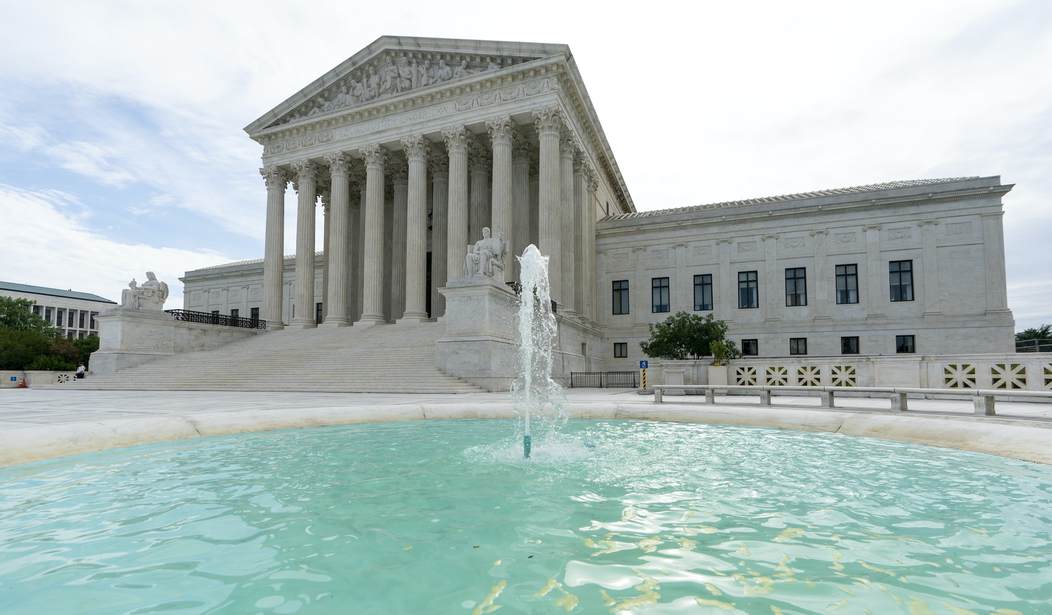Editor's Note: This column was co-authored by Matthew J. Dowd.
Common sense and constitutional order are turned upside down when unelected judges countermand congressional policy decisions. In addition to having better tools to make well-informed choices and better access to a broad range of expert advice, elected representatives of the citizenry are the appropriate officials to weigh all the trade-offs and strike the compromises and balances needed in setting policy.
Nevertheless, the Supreme Court for almost a decade has intervened in the area of national innovation policy to alter the choices made by the legislature. In addition to being the wrong decisionmakers, the Justices have imposed policies that discourage investment and invention in critical technologies, such as medical diagnostic methods now needed to detect the coronavirus. Before 2012, such diagnostic methods were eligible for patenting—to reward innovators and to fund further R&D. But then, in its Mayo decision, the Court upended over a century of settled law, suddenly making such methods no longer eligible for patenting even if they meet all the other prerequisites Congress established as being sufficient for patent protection.
Over the past eight years, the Court’s ruling has diminished, if not practically destroyed, incentives to invest in diagnostic test inventions. Several leading health care institutions, including the famed Cleveland Clinic, virtually abandoned their work on new diagnostic tests when their patents were invalidated under the force of the Mayo case, years after their research was conducted and funds expended.
Although there are many reasons for the nation's abysmal lack of preparedness to combat the Covid-19 pandemic, the loss of incentives to invest in diagnostic methods is surely one of them. Now, the entire nation is paying a terrible price, in part because of poor policy choices by the high court.
Recommended
In the Mayo opinion, Justice Breyer said the Court had to discern: "how much future innovation is foreclosed relative to the contribution of the inventor." What competence do judges have to assess the weight of either consideration, much less to compare one "relative" to the other? They are not trained in innovation economics or the realities of business and venture capital investment options. They are not equipped by training or experience to judge the technical merit of a particular invention as might the Nobel Prize committee.
Nor does the Court have before it in this or other such cases the massive empirical record typically amassed by Congress when studying and making difficult economic choices for the nation. In contrast to the legislature, courts have before them only a narrow factual record as presented by the parties, not the vast collection of all relevant facts and figures gathered over many years of hearings that informs such legislative policy choices.
To be sure, the Court had numerous amicus briefs before it and quoted several academic articles by patent professors. But those seem poor substitutes for an actual evidentiary record of the scope and depth necessary for rational policymaking. And pure speculation is no substitute. The opinion admits as much, saying: "And so there is a danger that the grant of patents ... will inhibit future innovation ..." Perhaps, though, the Court could have equally speculated that “there is danger that the denial of patents will inhibit future innovation.”
The Mayo decision also expanded massively on prior judge-made law of "implied exceptions" to the four broad categories Congress had previously made eligible for patent protection, covering processes, machines, manufactures and compositions of matter. The Court effectively rewrote the statute, narrowing these categories based on its own policy beliefs.
This narrowing of patent eligibility is not limited to diagnostic methods, but also covers all computer-implemented inventions considered abstract. If allowed to continue, this limitation on what can be patented will wreak havoc on our country’s ability to lead in key 21st century technologies, including artificial intelligence, 5G telecommunications, robotics, autonomous vehicles, quantum computing, genetic medicines, personalized drugs and many others. All of these technologies are now under a cloud of uncertainty as to their patent eligibility—even though most such inventions will clearly meet the traditional patentability standard of being novel and nonobvious.
Unfortunately, as the United States has limited patent protections here, our competitors, including China, have been expanding such protections, including for innovations in critical emerging technologies. As a result, we may soon see China leap-frog America in all of these areas. Our global competitiveness will suffer, we will lose well-paying jobs, and our national security could also be compromised.
It is time for Congress to reassert control over our nation's innovation policy. And it can start by restoring eligibility for patenting.
The Honorable Paul R. Michel served as Chief Judge of the U.S. Court of Appeals for the Federal Circuit from 2004 to 2010. He was first appointed to the U.S. Court of Appeals by President Ronald Reagan in 1988.
Matthew J. Dowd is the Founder and Managing Partner of Dowd Scheffel, PLLC, a law firm focusing on intellectual property matters. He served as a clerk for Judge Michel.

























Join the conversation as a VIP Member